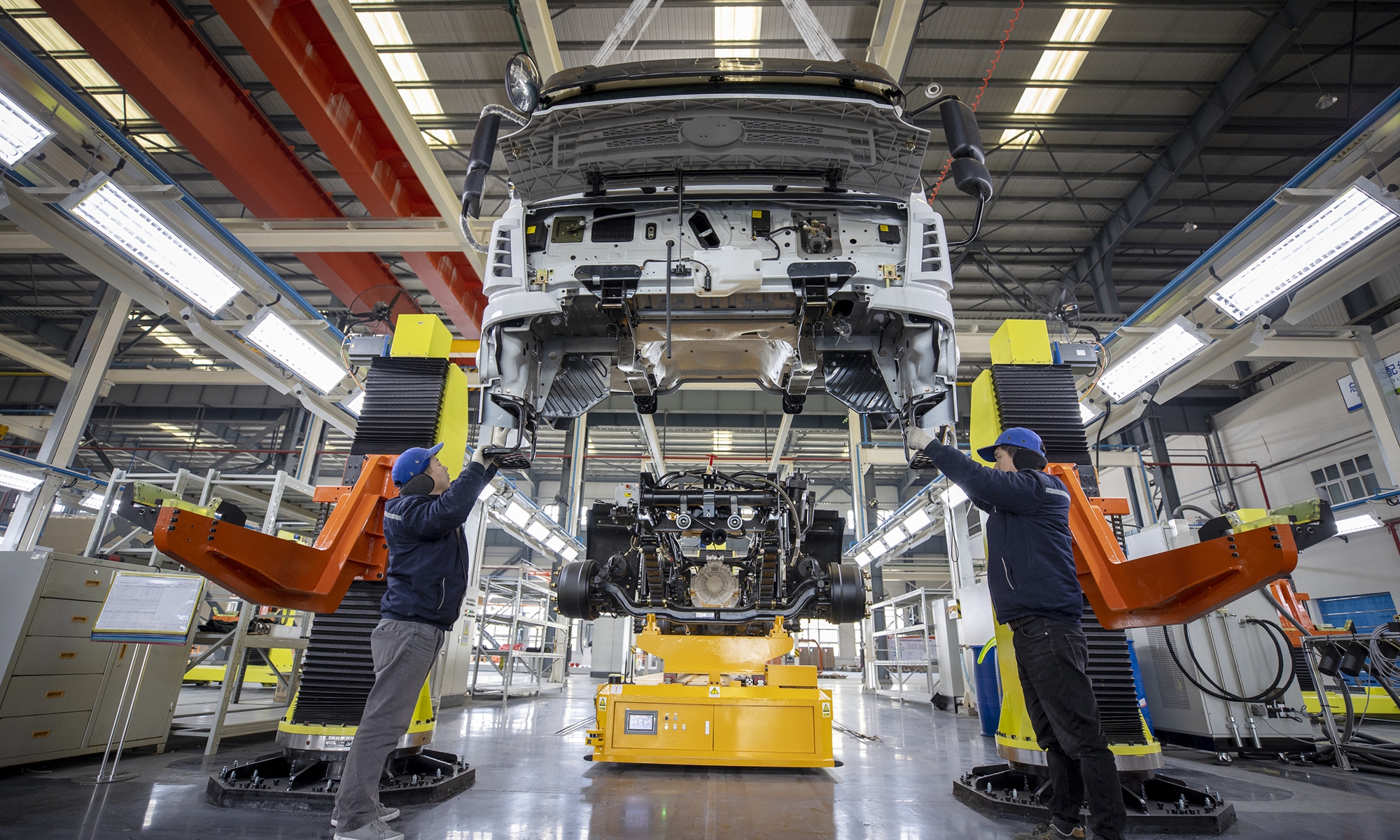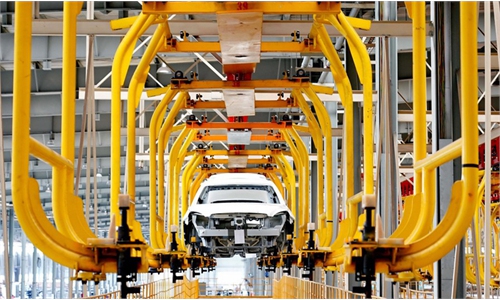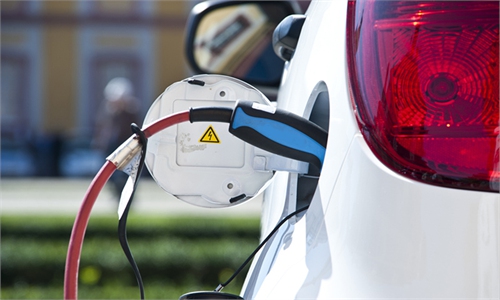COMMENTS / EXPERT ASSESSMENT
China provides advantageous growth path for NEV and other high-tech sectors

Employees work at a commercial new-energy vehicle (NEV) company in Yancheng, East China's Jiangsu Province. Photo: IC
While the highly contagious Delta variant is shadowing the prospect of global recovery, China is making steady progress in exploring its potential market and upgrading its economic structure. The Political Bureau of the Communist Party of China Central Committee recently held a meeting to analyze the current economic situation and make arrangements for economic work in the second half of the year.
Among a series of arrangements, the meeting underlined the acceleration of development of new energy vehicles (NEVs) and the ramping up of e-commerce and express delivery systems in counties and rural areas. It also reiterated the commitment to improve the country's industrial supply chains and to break through technology bottlenecks.
The NEV sector has become a hot field in countries around the world, representing a revolution in energy technology and leading the green development. Among the countries that have been striving to take a lead in this field, China has developed obvious advantages, including its vast market and prominent institutional strengths.
The market of 1.4 billion-people with a scaling consumer demand and the high rate of smart phone users are crucial for nearly all emerging industries. Despite the sudden onslaught caused by the novel coronavirus last year, international auto giants have been pouring money to seize the initiative in the highly potential market.
Tesla has received increasingly strong support in the Chinese market for its overall performance which registered a net profit of $1.14 billion for the second quarter of this year, nearly 10 times the net profit during the same period last year.
Daimler and Toyota established joint ventures with Chinese manufacturers to build electric cars while Volkswagen is building its third Chinese electric cars factory . Besides foreign multinationals, Chinese players have also witnessed rapid growth over recent years, including NIO, XPeng and Li Auto, each having developed strong core competitiveness.
In addition to the access to a potential vast market, the country's institutional strength, embodied in its outstanding capabilities of planning and execution, is effectively boosting the growth of the industry.
By comparison, though the US has intended to speed up development of the industry it has obvious development restrictions, such as a market with barely any growth potential. Instead of the highly hyped decoupling strategy, the US NEV sector needs to rely on the global market, especially the promising Chinese market, to grow.
On the other hand, though the US has attempted to restrict the advancement of Chinese technology, at the end of the day, it is consumer demand that drives the innovation and determines the path of industrial growth. Not only the NEV sector, but the wide high-tech industries are also expected to enter a fast lane based on China's ramped up efforts to promote the new economic development pattern of "dual circulation" which takes the domestic market as the main driving force while letting the domestic and foreign markets boost each other.
The massive domestic market will unleash a tremendous potential to scale up and support the expansion of both domestic and foreign firms operating in China.
There's no denying that the continuing pandemic and emerging virus variants will pose potential risks to economic recovery in the second half of the year, but the resilience of Chinese economy and the country's strong capability on epidemic prevention have been tested during the past year. This will not alter China's agenda to upgrade its economic structure and shift to a high-quality growth pattern.
For this year, a mid to high growth rate, ranging from 6 to 8 percent, is ensured in spite of the potential risks. However, the most important point is China's economic transformation which will portray a picture of the country's future growth.
The article was compiled based on an interview with Cong Yi, professor at the Tianjin University of Finance and Economics. bizopinion@globaltimes.com.cn



